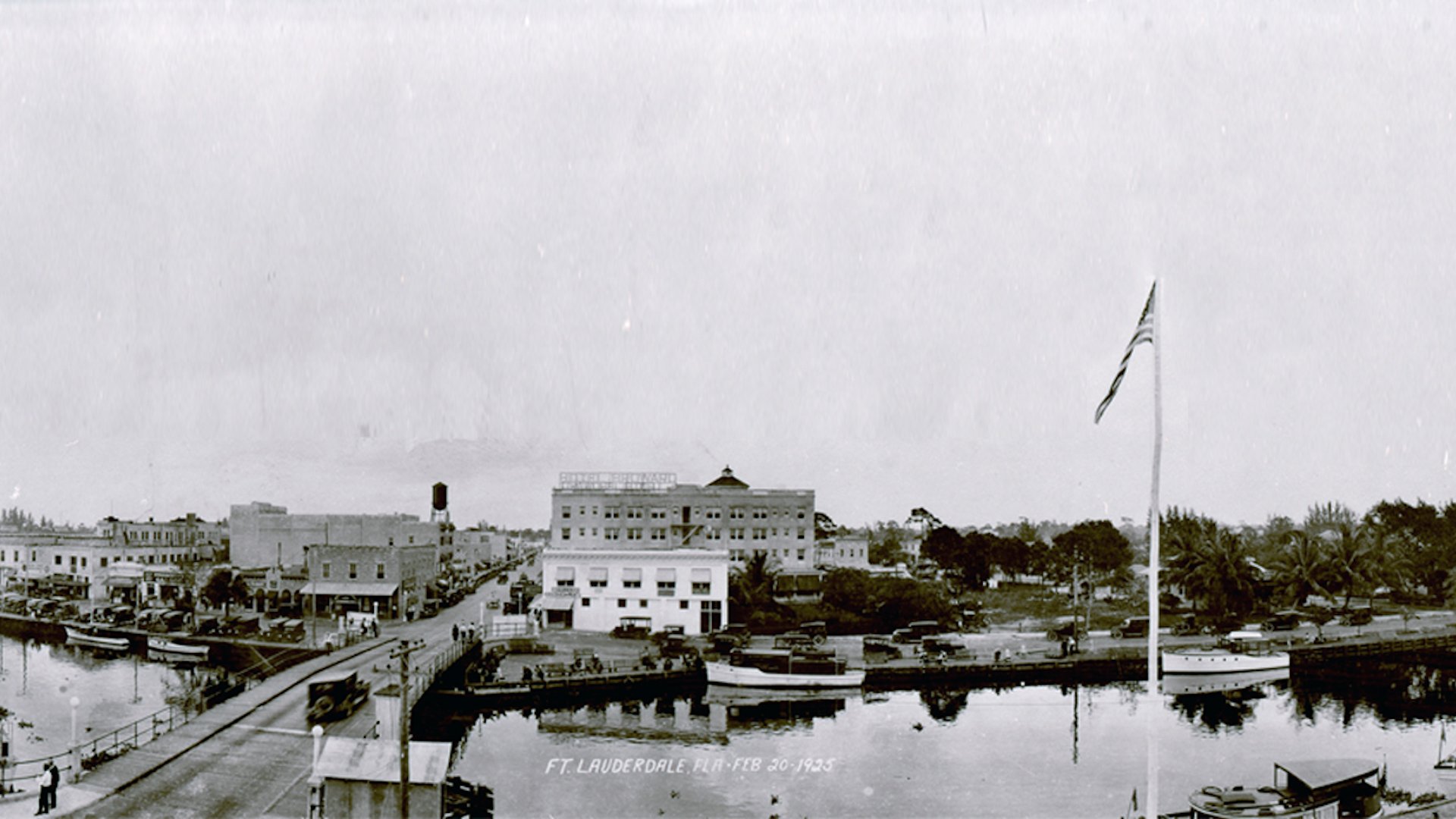History
We’re building on a tradition of perseverance and excellence.
Dwight L. Rogers, Sr.
Dwight L. Rogers, Sr. and John E. Morris, Sr. both graduated from Mercer University in 1910 with law degrees and went back to their home town to open separate law practices in Georgia. In December 1925, by chance, they ran into each other in front of the Hotel Broward in Fort Lauderdale. Both men were South Georgia residents, law school classmates, and both had been drawn to Fort Lauderdale by the land boom. The 1920s were a period of significant growth for Fort Lauderdale, with many businesses and developments emerging, particularly due to the influx of tourists and new residents.
Rogers and Morris decided almost immediately to form a partnership. They remained in Fort Lauderdale after the 1926 hurricane and the subsequent economic collapse because of their vision of the area’s immense potential.
The two men flipped a coin to see whose name would come first in the firm name and they opened their first law office in the Wheeler Building on Wall Street along the northern bank of the New River. In the 1920s, Wall Street in Fort Lauderdale referred to a bustling area near the New River that was a center for commerce and banking. The street ran parallel to the river and was close to the downtown area.
John E. Morris, Sr.
In 1928, Rogers and Morris supported George W. Tedder, Sr. in an election for Broward’s only circuit judgeship. Tedder won, but the incumbent, Vincent C. Giblin, refused to vacate the office. Eventually, Giblin surrendered his place on the bench and Tedder occupied the office. Later Rogers and Morris would joke that had Giblin remained on the bench, they would have had to leave town.
In 1931, Dwight L. Rogers, Sr. was elected to the Florida House of Representatives, where he served until 1938 and was the father and author of the Homestead Exemption Act. In 1944 he was elected to his first of five terms as U.S. Congressman. In December 1954, after being re-elected in November to his sixth term, Dwight L. Rogers, Sr. died of a heart attack. He was succeeded in office by his son, Paul, who served 12 terms in Congress.
John Morris, Jr.
Robert E. Ziegler
Dwight Rogers, Jr. and John Morris, Jr. joined the firm after service in World War II, carrying on the tradition of their fathers. They were long-time friends, schoolmates, and even served as president of the same fraternity at the University of Florida.
From 1947 to 1952, John Morris, Jr. served as Fort Lauderdale municipal judge and, in the early 1950s as attorney for the Broward County School Board.
Meanwhile, Dwight Rogers, Jr. served as assistant state attorney from 1948 to 1952, during which time he was responsible for shutting down the infamous illegal gambling casino, the Colonial Inn.
Following the deaths of the senior Rogers and Morris in 1954 and 1955, respectively, Robert E. Ziegler became a partner in the firm.
John Morris, Jr. passed away in 1985 and Dwight L. Rogers, Jr. in 2007.
The practice became a third generation business when Dwight L. Rogers, Jr.’s son, Romney Rogers, joined the firm in 1978. Romney followed his family pursuit of community service and served as a Fort Lauderdale City Commissioner from 2009-2018.
The practice became a fourth generation business when Romney’s son, Romney (Cam) Rogers Jr. joined the firm in 2012.
As the oldest law firm founded in Broward County, Rogers Morris & Ziegler is deeply rooted in the community and has a tradition of protecting the best interests of the individuals, businesses and public entities that it represents.
Building for tomorrow.
Rogers, Morris & Ziegler LLP exists to serve its clients’ best interest and its mission is to always provide personalized, quality legal advice and services for a fair fee. Our attorneys and staff treat each other and our clients like family and do our best to zealously represent their interests, working at the highest ethical level.









